
Click the following link for a safe PDF copy: Jaysh al-Fataḥ: “Condemning and Rejecting the American Designation of Dr. ‘Abd Allah bin Muḥammad al-Muḥaysinī”
__________________
Source: al-Maqalat Telegram Channel
To inquire about a translation for this statement for a fee email: [email protected]
Category: Dr. ‘Abd Allah bin Muḥammad al-Muḥaysinī
New video message from Dr. ‘Abd Allah bin Muḥammad al-Muḥaysinī: "Response To The Sanctions Imposed By The United States"
__________________
New magazine issue: “Īyyaḥā’āt Jihādīyyah #3"
For prior magazine issues see: #2 and #1.
—
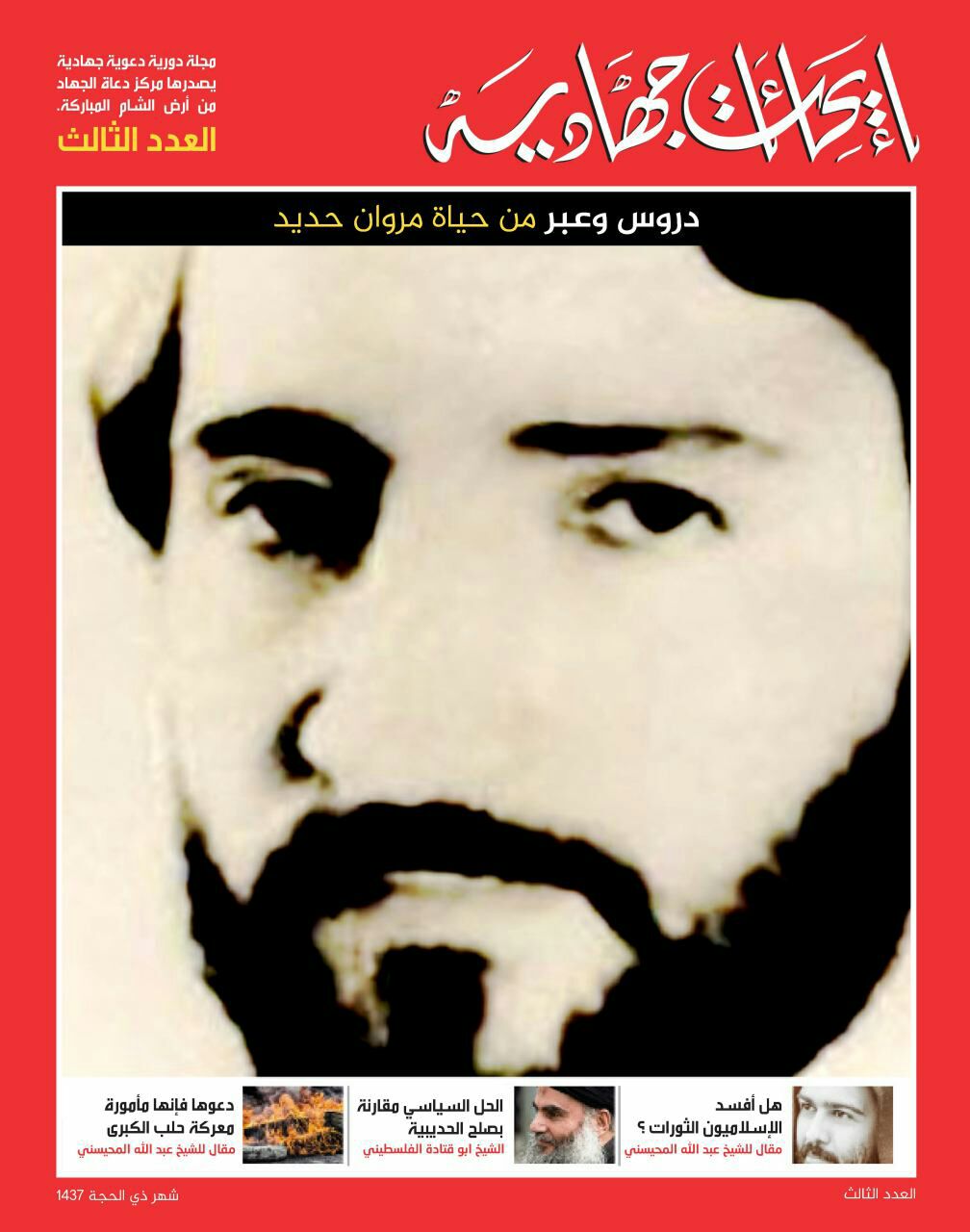
Click the following link for a safe PDF copy: Īyyaḥā’āt Jihādīyyah #3
_________________
To inquire about a translation for this magazine issue for a fee email: [email protected]
New video message from Dr. ‘Abd Allah bin Muḥammad al-Muḥaysinī: "Why Did They Call Them Kharijites? Thirty Characteristics of the Kharijites Applicable to the State Group"
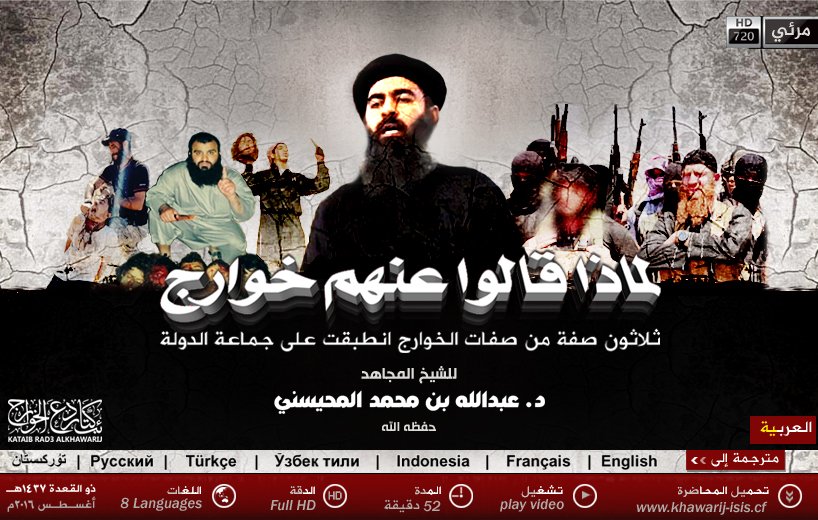
________________
To inquire about a translation for this video message for a fee email: [email protected]
New statement from Students of Scholarly Learning: "On the Subject of Mergers"
Click the following link for a safe PDF copy: Students of Scholarly Learning — “On the Subject of Mergers”
________________
To inquire about a translation for this statement for a fee email: [email protected]
New video message and statement from Tajma' Ahl al 'Ilm Fī al-Shām: "Announcing The Formation"

Video:
Statement:
Click the following link for a safe PDF copy: Tajma’ Ahl al ‘Ilm Fī al-Shām — “Announcing The Formation”
____________________
To inquire about a translation for this video message and statement for a fee email: [email protected]
New video message from al-Muhājirūn: "Question and Answer, Episode 1: Is Syria in Need of Men?"
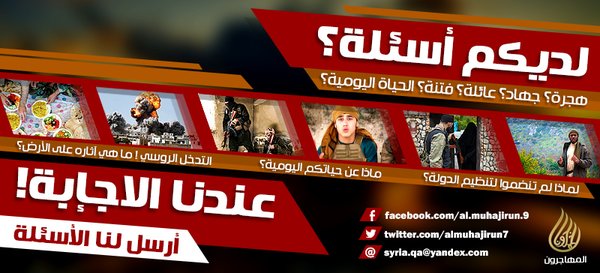
___________________
New video message from Ḥizb al-Islāmī al-Turkistānī in Bilād al-Shām: “Dr. ‘Abd Allah bin Muḥammad al-Muḥaysinī: Virtues of the Turkistānī Mujāhidīn in al-Shām"
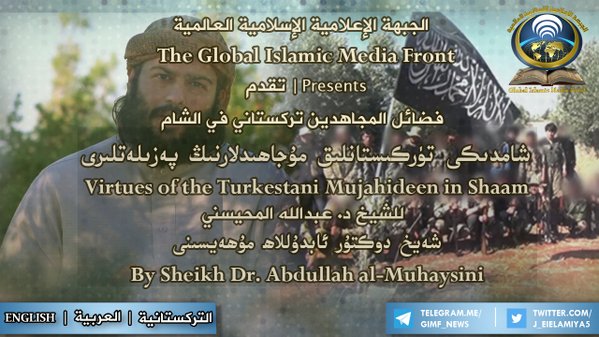
____________________
To inquire about a translation for this video message for a fee email: [email protected]
New video message from Ḥizb al-Islāmī al-Turkistānī in Bilād al-Shām: “Dr. ‘Abd Allah bin Muḥammad al-Muḥaysinī: The Importance of Martyrdom Operations in Our Current Time"
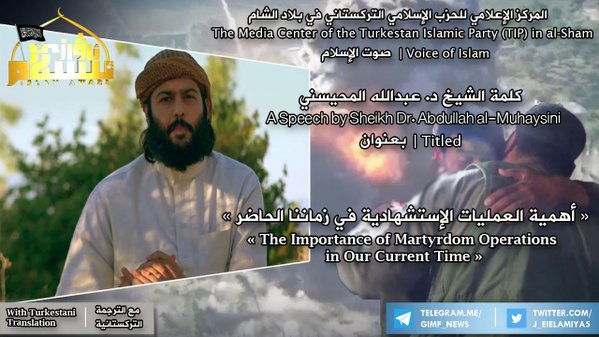
________________
To inquire about a translation for this video message for a fee email: [email protected]
New video message from Ḥizb al-Islāmī al-Turkistānī in Bilād al-Shām: "Dr. 'Abd Allah bin Muḥammad al-Muḥaysinī: A Message to Turkistānīs"
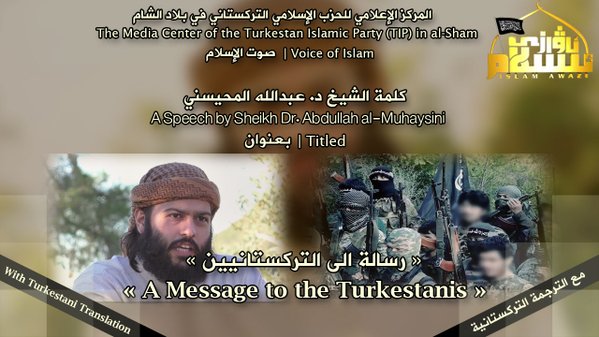
_________________
To inquire about a translation for this video message for a fee email: [email protected]
